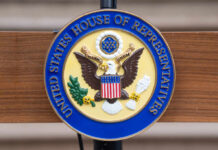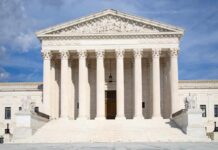
Leftist politicians have prioritized the removal of certain statues and monuments — particularly those that depict Confederate soldiers — in recent years.
While some conservative pundits, including National Review’s Rich Lowry, agree that many of these monuments should come down, a wide range of Americans believe that even symbols of dark periods in U.S. history should remain visible for future generations.
In 2020, then-President Donald Trump opined: “We have a heritage, we have a history and we should learn from the history, and if you don’t understand your history, you will go back to it again. You will go right back to it. You have to learn. Think of it, you take away that whole era and you’re going to go back to it sometime.”
Backlash toward efforts to remove historical monuments has increased recently in response to reports that the Pentagon has recommended removing the Confederate Memorial at Arlington National Cemetery.
The National Sons of Confederate Veterans have filed a suit aimed at preventing its removal, but member James Ronald Kennedy compared the effort to “the Ukrainians going into the courts of the Soviet Union expecting to get a fair hearing.”
Instead of relying on the group’s chances in court, Kennedy called on like-minded Americans to make their voices heard via a virtual public hearing held on Wednesday afternoon.
“That hearing, it’s part of their environmental impact study, and they’re having people give their opinion about whether or not it is advantageous or disadvantageous to take that monument down,” he explained.
For those of you hitting a paywall trying to read this incredible opinion piece by former US Senator Jim Webb (D) Virginia.
Save the Confederate Memorial at Arlington 🧵
A commission will tear down this monument to national healing by year’s end if we don’t act.
By Jim Webb… pic.twitter.com/gW4h3GmX7h
— Liberty Belle (@ArmisDei) August 19, 2023
While critics of Confederate monuments often portray them as a glorification of the South’s secession from the United States or even tacit support of slavery, Kennedy emphasized the importance of these markers on an individual level.
“It had to do with memorializing veterans — giving family members whose sons, brothers, husbands did not return, buried in unmarked graves all across the south, give them a place to remember their loved ones that did not return,” he said. “They sacrificed all for their country, and that’s what it was. Unfortunately, it’s turned into an emotional issue for political purposes.”
Using this issue as a wedge could reopen generations-old wounds, Kennedy warned, adding: “If the victorious side starts to desecrate their enemies’ war memorials, it means the war is back on.”



























